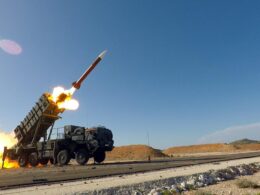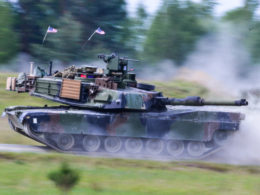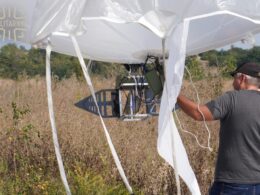Scientists at at least 11 British universities have aided the Iranian regime in developing technology applicable to its drone program and fighter jets, according to an investigation conducted by The Jewish Chronicle. The technology is used in Shahed-136 drones, which Russia uses extensively in its strikes against Ukraine.
This revelation has raised deep concerns among senior MPs and peers, with a government spokesperson emphasizing that Britain will not tolerate collaborations compromising national security.
The investigation found that at least 11 British universities, including Cambridge and Imperial College London, are involved in research producing studies with potential military applications for Iran. Projects include enhancing drone engines, improving control systems for jet engines, researching unmanned aerial vehicles (UAVs) as mobile base stations for communication systems, developing special alloys for military aircraft, and upgrading armor-plating coatings.
The UK has imposed sanctions against Iranian individuals and organizations supplying kamikaze drones to Russia for use in Ukraine. Iran's drone and missile arsenal is controlled by the Islamic Revolutionary Guard Corps (IRGC), which is increasingly being called for proscription as a terrorist organization.
Lord Polak, President of Conservative Friends of Israel, commented on the presence of IRGC in British universities, stating, "It's clear that the IRGC controls Iran's drone programs, and that these weapons are being used by the Russians in Putin's war on Ukraine. That it has a presence in British universities is yet more evidence...that we should have banned the IRGC a long time ago."
Shadow Foreign Secretary David Lammy called the investigation "deeply troubling" and urged the government to promptly investigate potential breaches of sanctions. Former Tory cabinet minister David Davis MP questioned the government's enforcement of compliance with sanctions, emphasizing that researchers at British universities should not be assisting Iran in enhancing its weapons systems.
Alicia Kearns MP, chair of the Commons Select Committee on Foreign Affairs, described the collaboration as "horrifying" and expressed concerns that it might breach sanctions on sensitive and dual-use technologies. She announced her intention to write to the Education Secretary and Science and Technology Secretary to address the findings.
The investigation also discovered collaborations between British academics and Iranian universities that have been sanctioned by the UK, the US, and the European Union. Such collaborations raise questions about potential breaches of sanctions regulations and the prohibition on providing technical assistance in the development and production of restricted technology.
The JC uncovered two key research projects involving British and Iranian universities. One project, jointly conducted by researchers at Imperial College and Iranian universities, focused on upgrading drone engines to enhance their power, fuel consumption, flight endurance, and tolerance to extreme conditions. The study acknowledged the critical role of unmanned aerial vehicles (UAVs) in military operations.
Another project, led by Cranfield University in collaboration with an Iranian university, examined the military applications of advanced control systems for turbojet engines. The research aimed to improve maneuverability, which is crucial for military and UAV applications.
Experts have raised concerns over the potential military implications of these collaborations. Farzin Nadimi, an expert on Iran's military, highlighted the significance of Imperial College's research in the development of smaller drones. He noted that most Iranian drones are powered by two-stroke engines, including the Shahed-136, which Russia extensively uses in the Ukrainian war.
According to the JC's investigation, there have been numerous collaborations between Shahid Beheshti University in Iran (sanctioned by the UK since 2011) and UK-based academics, including research on electronic eavesdropping countermeasures and the development of electronic devices using superconductors and graphene.
The UK has laws prohibiting the transfer of military and dual-use technology to Iran and criminalizes providing technical assistance to sanctioned individuals or institutions. The investigation analyzed thousands of papers published in scientific journals since 2017 and identified potential breaches of sanctions rules.
A government spokesperson assured that robust systems are in place to protect UK research from threats, and applications raising concerns are refused. The universities involved, including Cranfield University, Northumbria University, Imperial College London, and the University of Glasgow, emphasized their commitment to complying with guidelines and legal obligations.
Related:
- Iran’s Shahed drones have stolen German tech
- More than 30 Western components found in Iranian-made Shahed-136 UAVs – investigation
- Russian strategy to exhaust Ukraine’s air defense with cheap drones unsuccessful – British Intel
- Russia’s kamikaze drones have Western spare parts – Ukraine’s National Security Secretary





